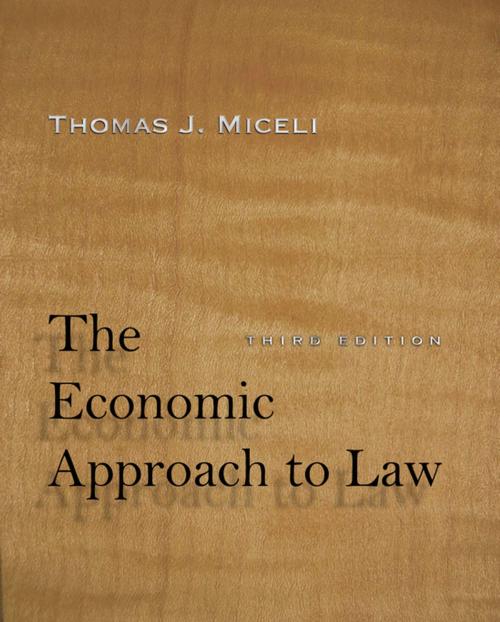| Author: | Thomas J. Miceli | ISBN: | 9781503604575 |
| Publisher: | Stanford University Press | Publication: | October 17, 2017 |
| Imprint: | Stanford Economics and Finance | Language: | English |
| Author: | Thomas J. Miceli |
| ISBN: | 9781503604575 |
| Publisher: | Stanford University Press |
| Publication: | October 17, 2017 |
| Imprint: | Stanford Economics and Finance |
| Language: | English |
Master teacher Thomas J. Miceli provides an introduction to law and economics that reveals how economic principles can explain the structure of the law and make it more efficient.
The third edition of this seminal textbook is thoroughly updated to include recent cases and the latest scholarship, with particular attention paid to torts, contracts, property rights, and the economics of crime. A new chapter organization, ideal for quarter- or semester-long courses, strengthens the book's focus on unifying themes in the field. As Miceli tells a cohesive, analytical "story" about law from a distinctly economic perspective, exercises and problems encourage students to deepen their knowledge.
A companion website is available at http://www.sup.org/economiclaw. It offers a full suite of resources for both students and professors. Key pedagogical features include cases; discussion points that provide additional analysis of topics in the book; graduate notes, which enrich the text for more advanced readers; and relevant links. Professors have access to sample syllabi for undergraduate and graduate courses and an instructor's manual, which provides answers to all of the end-of-chapter questions and problems in the book.
Master teacher Thomas J. Miceli provides an introduction to law and economics that reveals how economic principles can explain the structure of the law and make it more efficient.
The third edition of this seminal textbook is thoroughly updated to include recent cases and the latest scholarship, with particular attention paid to torts, contracts, property rights, and the economics of crime. A new chapter organization, ideal for quarter- or semester-long courses, strengthens the book's focus on unifying themes in the field. As Miceli tells a cohesive, analytical "story" about law from a distinctly economic perspective, exercises and problems encourage students to deepen their knowledge.
A companion website is available at http://www.sup.org/economiclaw. It offers a full suite of resources for both students and professors. Key pedagogical features include cases; discussion points that provide additional analysis of topics in the book; graduate notes, which enrich the text for more advanced readers; and relevant links. Professors have access to sample syllabi for undergraduate and graduate courses and an instructor's manual, which provides answers to all of the end-of-chapter questions and problems in the book.















